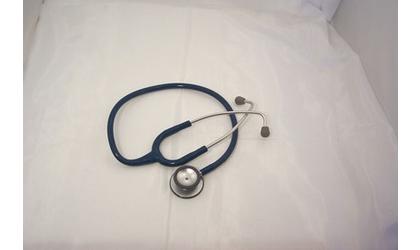(KNZA)--An increase in cases of a pneumonia-like illness remains under investigation in Brown County.
That word is delivered in a news release issued Wednesday by the Hiawatha Community Hospital.
The release notes that the Brown County Health Department and the Kansas Department of Health and Environment is assisting with the investigation.
According to the release, 61 people have been diagnosed with lower-respiratory infections, including pneumonia and bronchitis, in Brown County. Testing for what the release calls “many viruses and bacteria” has revealed two types, which are rhinovirus and mycoplasma pneumoniae. Both are spread person to person when ill people cough, sneeze, or expose others to their saliva and mucus. Examples noted in the release about how they are spread include shaking hands with someone and touching your eyes, mouth, or nose, or sharing water bottles among a sports team.
Rhinovirus is caused by a virus and is the most common cause of the common cold. Symptoms of rhinovirus are usually minor, including sneezing, sore throat, coughing, and sometimes a fever. Most people feel better within 7 to 10 days, but some people, especially those with weakened immune systems or asthma, may become sicker and get bronchitis or pneumonia. People can get sick with rhinovirus year-round but is more common in the fall and spring.
Mycoplasma pneumoniae is a type of bacteria that can cause different kinds of illnesses but people most often get sick with bronchitis and pneumonia. The time it takes between breathing in the bacteria and having symptoms can be between 1 and 4 weeks. Symptoms appear and get worse over a period of weeks, and usually include sore throat, being tired, fever, headache, and a slowly worsening cough that can last for weeks or months. Pneumonia caused by M. pneumoniae is usually mild, but more serious pneumonia can develop. M. pneumoniae infection is most common in young adults and school-aged children. Infections are commonly spread among families and people who attend or work in crowded settings, like a school. Illness from M. pneumoniae can occur at any time during the year but may happen more often in summer and early fall.
The release encourages anyone with a fever to stay home until fever-free for 24-hours without the use of fever-reducing medicine. Those with a fever of 100.4 or greater for three days with a cough should seek medical attention.
According to the release, the best way to prevent the spread of germs, including rhinovirus and Mycoplasma pneumoniae is to:
-
Cover your nose and mouth with a tissue when you cough or sneeze. After using the tissue, throw it in the trash and wash your hands.
-
Cough or sneeze into your sleeve at the elbow if you do not have a tissue. Do not cough into your hands.
-
Wash your hands often with soap and water. If soap and water are not available, use an alcohol-based hand rub.
-
Do not touch your eyes, nose, and mouth.
-
Clean and disinfect surfaces and objects that may have germs on them.
-
Stay away from others who are sick or when you are sick.
© Many Signals Communications
MOST VIEWED STORIES
Holton man receives Hard 25 sentence for child sex crime
Horton man arrested following weekend shooting
Hiawatha man facing sex, drug charges waives prelim hearing
Horton woman arrested on drug charges
Train strikes walking man in Jackson Co; victim survives
Two arrested Thursday in Jackson Co on meth-related charges
Power outage leads to early school dismissal
Hiawatha airport project approved
Inmate dies at Lansing Correctional Facility
Vacancy filled on USD 115 board
MO grass fire battled Thursday
Community Healthcare System hires new CEO
Mound City Mayor Duane Nauman remembered
Falls City School Board approves personnel moves and purchases
Valley Falls' future set for Wednesday eve discussion
PBPN breaks ground for new business
Sheriff issues safety reminder
USD 415 board approves bids for new HS stadium lights
Brown Co Planning Commission established
Johnson-Brock School not able to accept all option-in requests
LATEST STORIES
New Atchison garden sees growth
Lancaster, County, plan weekend clean up
Effingham awarded water-related grant
Brown Co Planning Commission established
Atchison firefighter receives VFW honors
Highway 73 near Verdon NE reopened
Mound City Mayor Duane Nauman remembered


 Printer Friendly
Printer Friendly
 Email to a Friend
Email to a Friend





